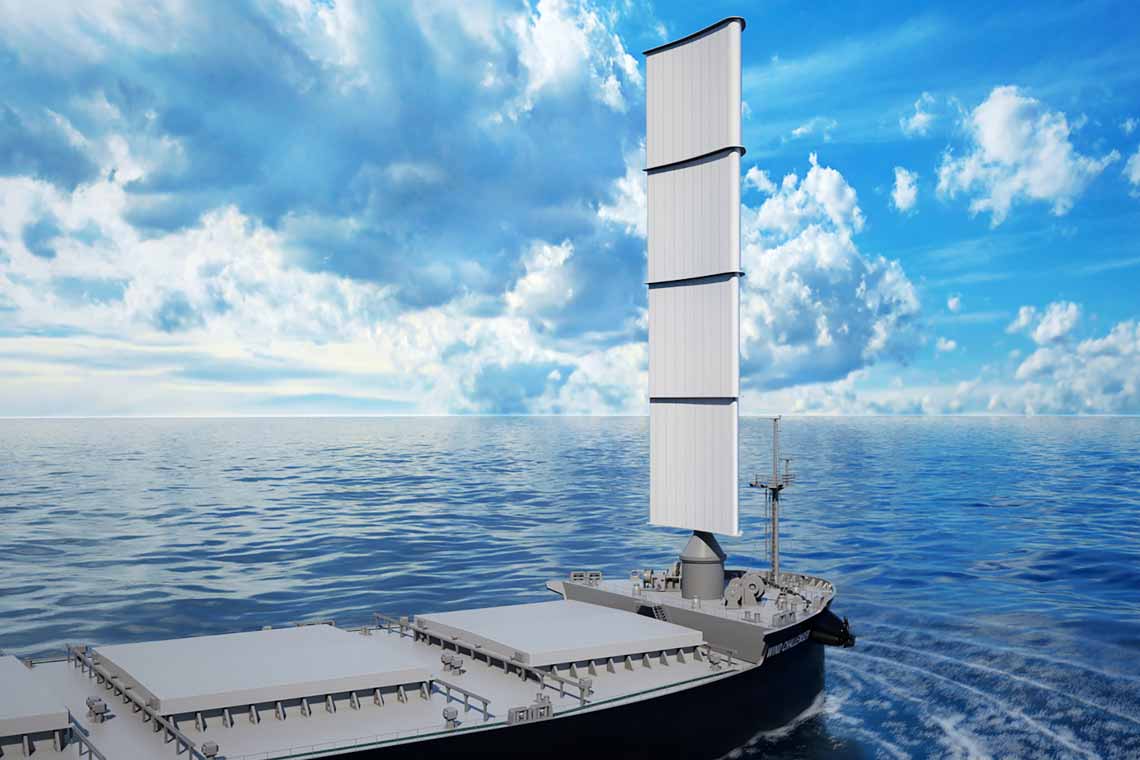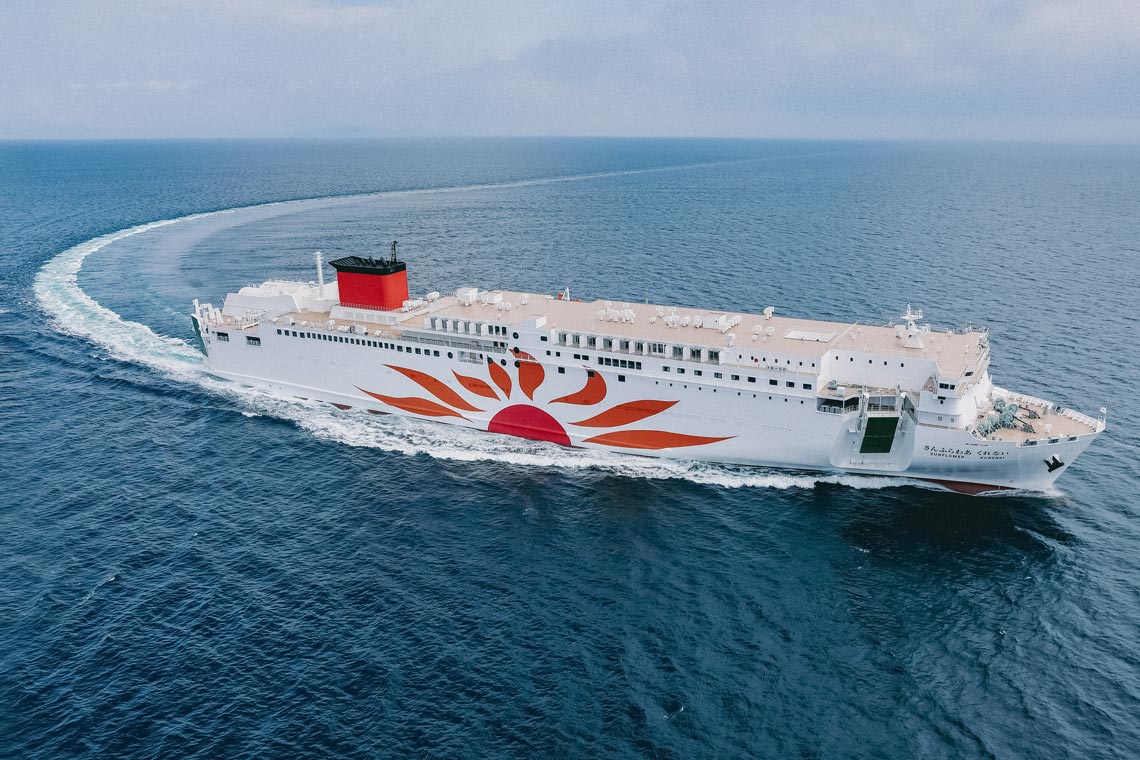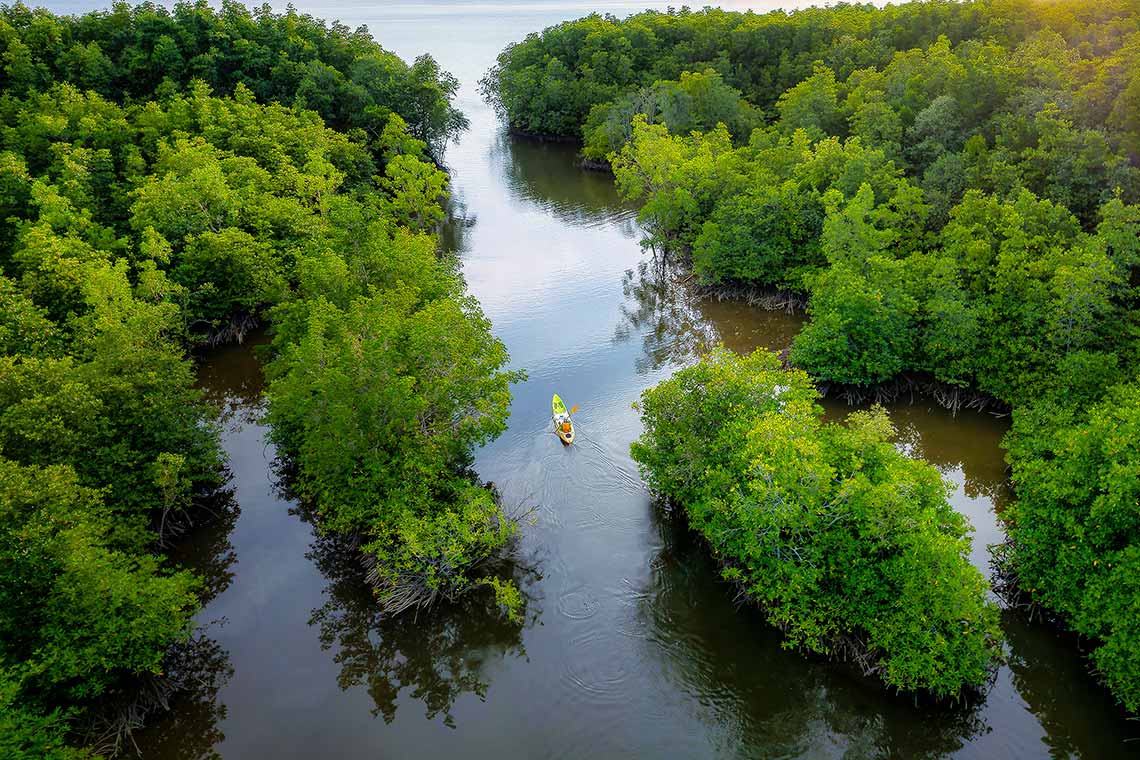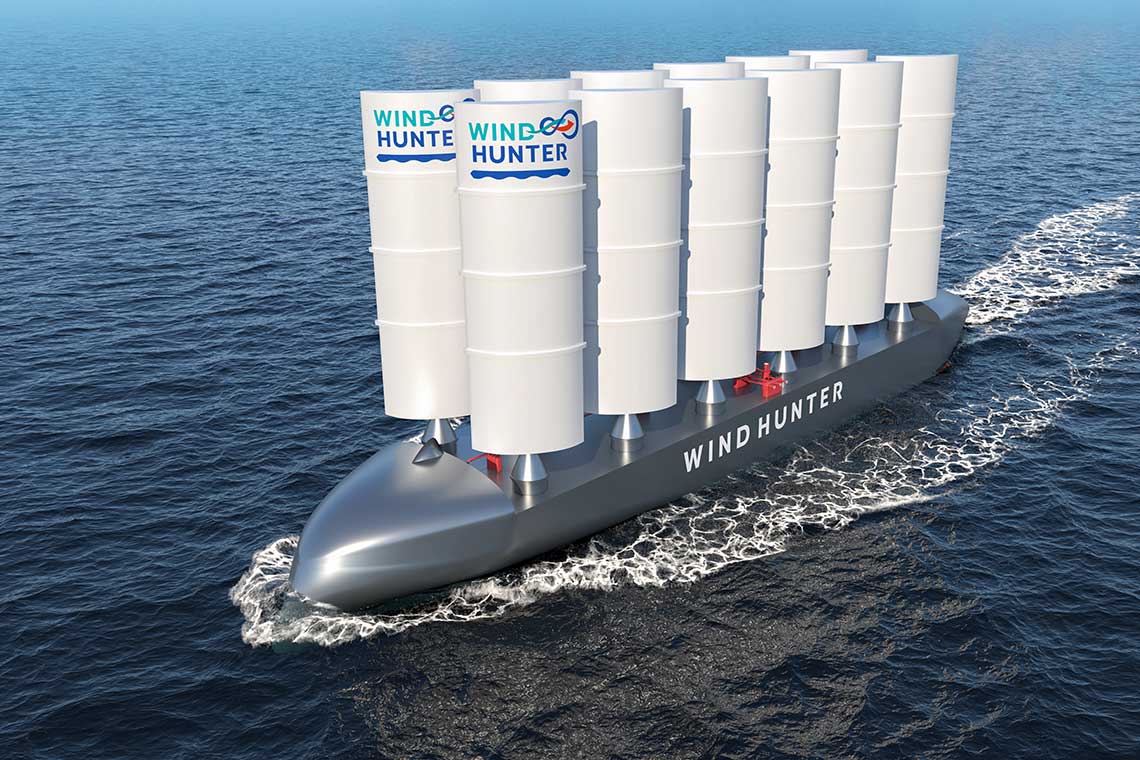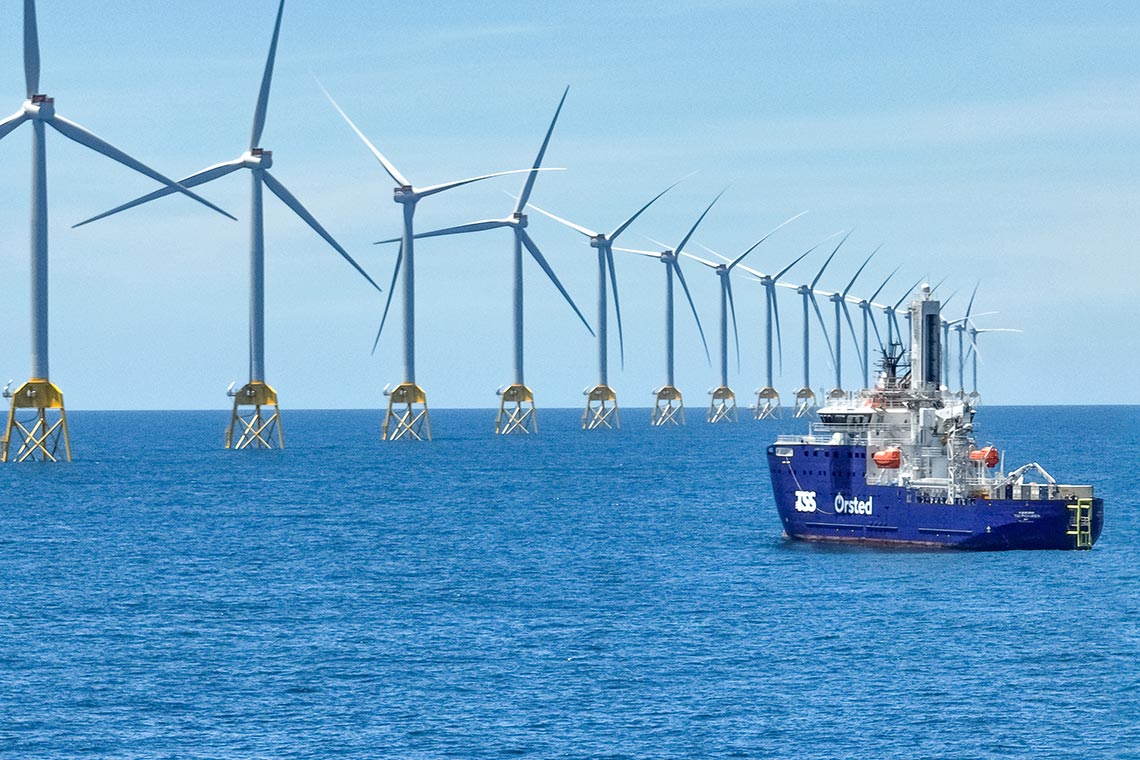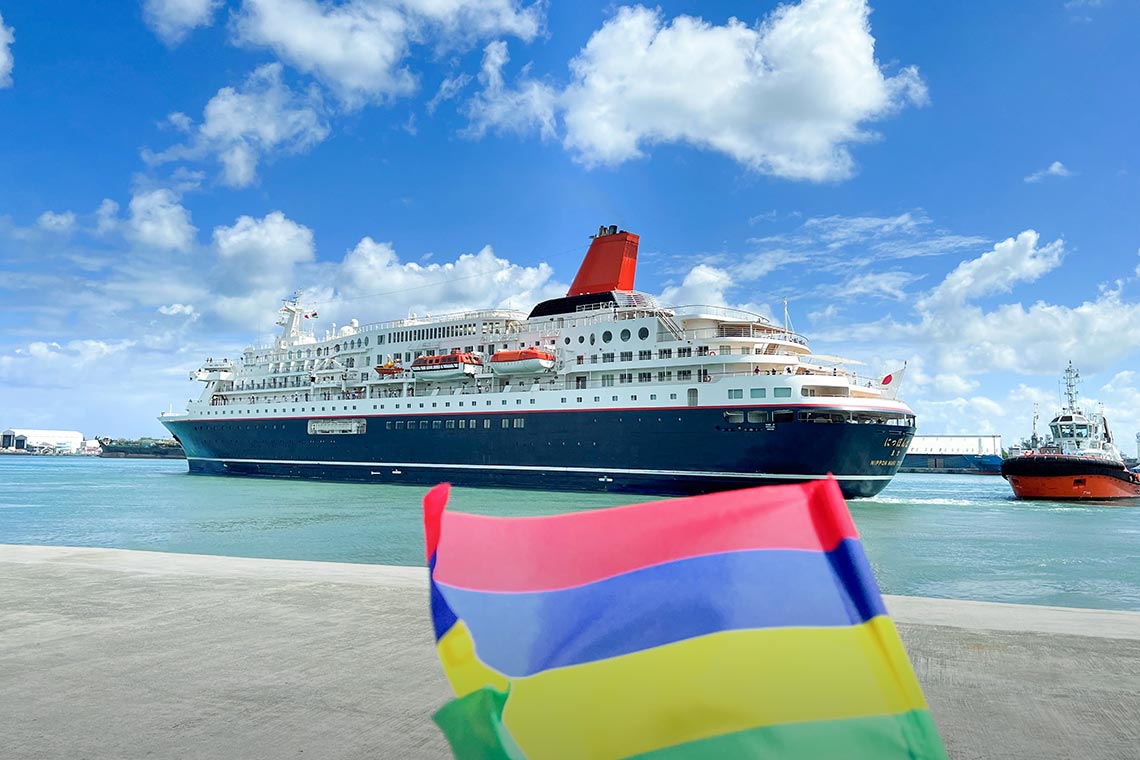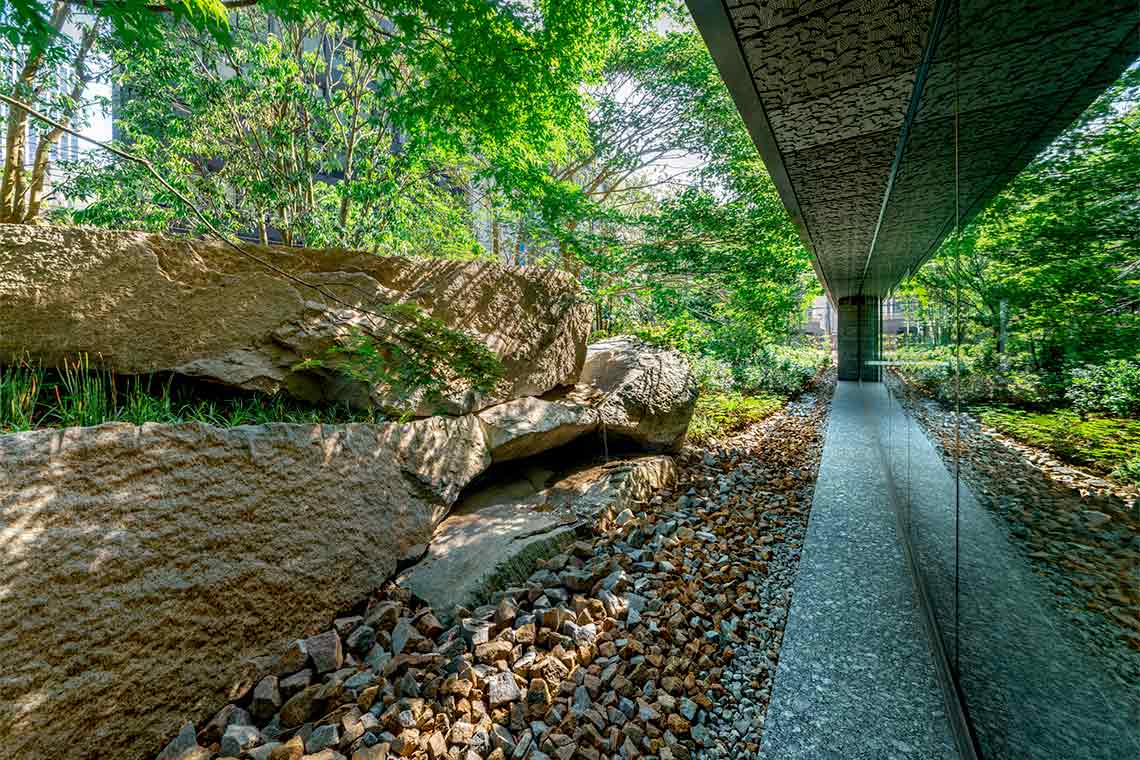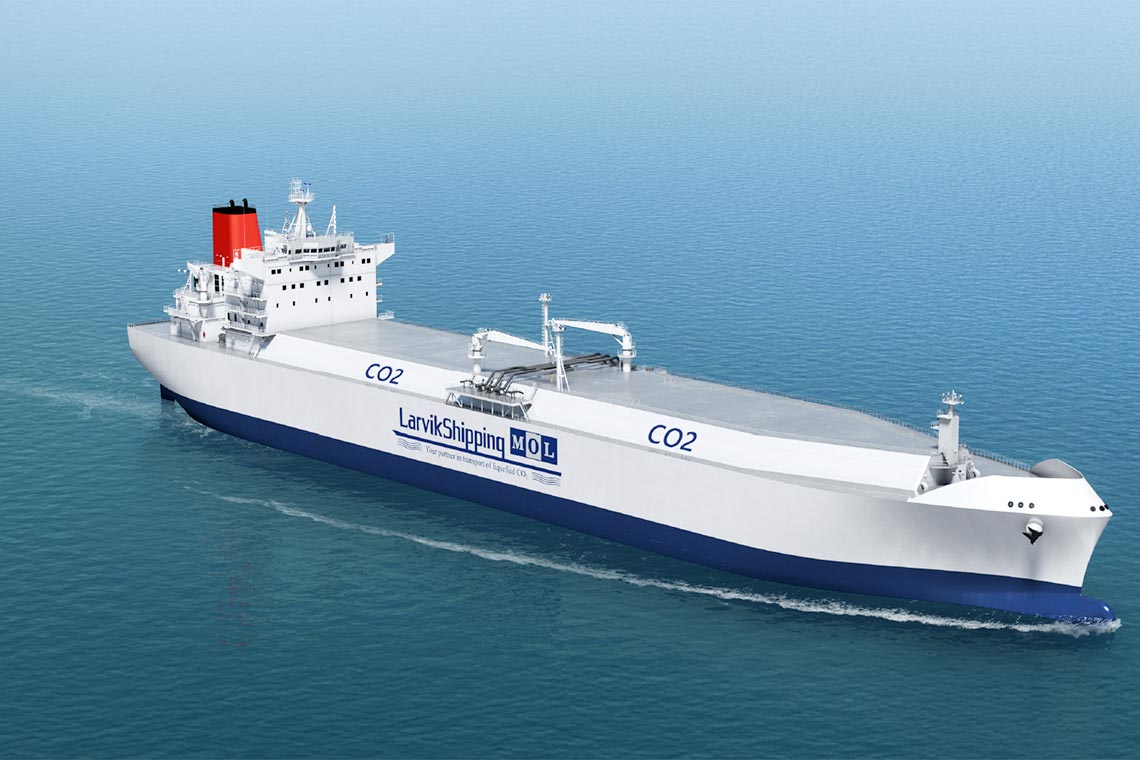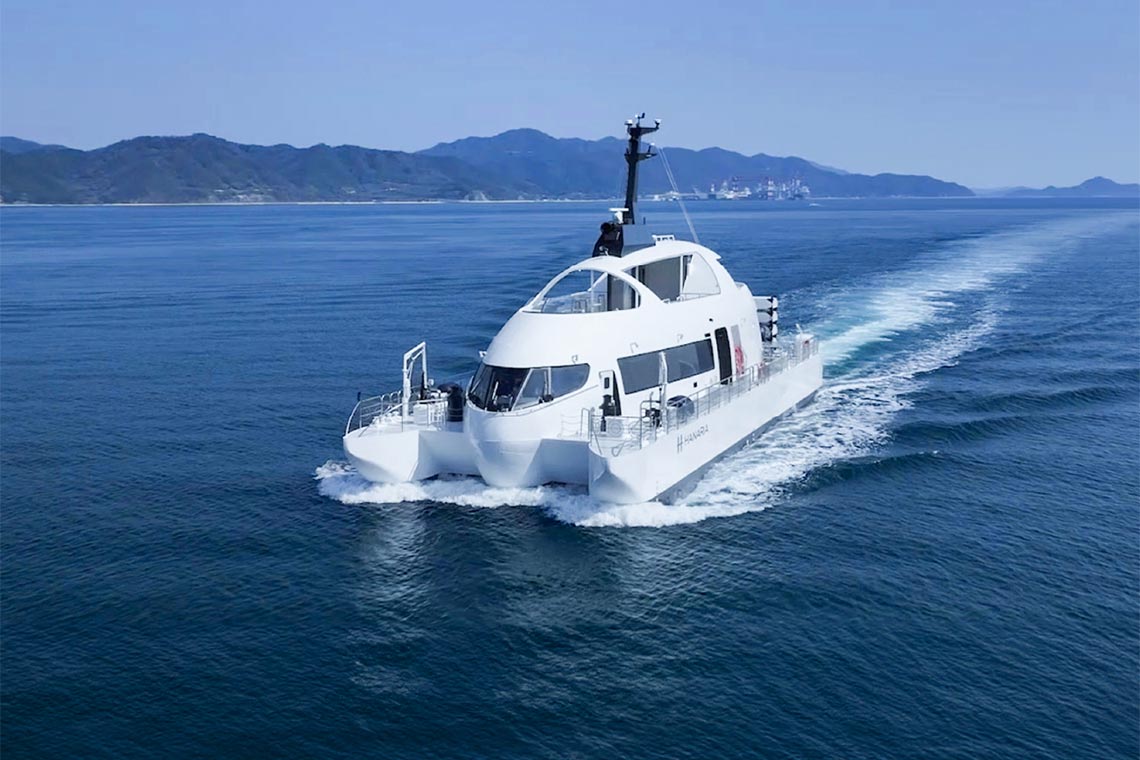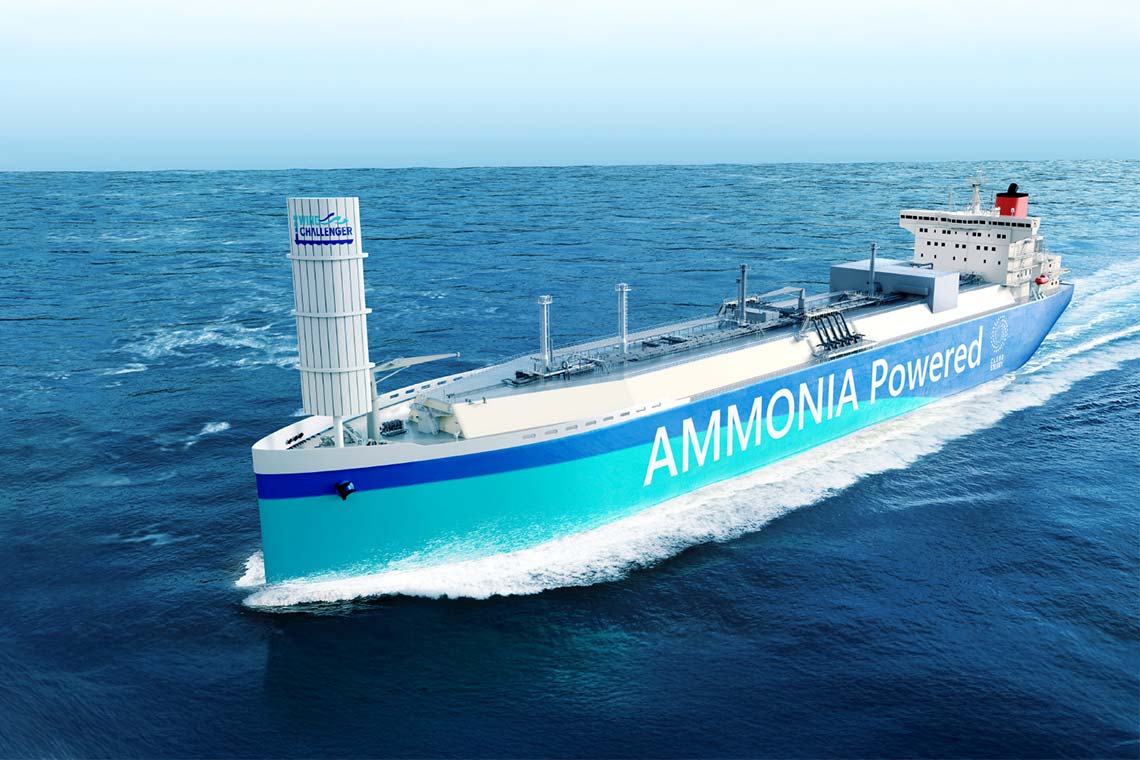
HANARIA
- STATEMENT
- To the future,
with our
'Ocean Planet.'
BLUE ACTION 010 Hydrogen Passenger Ship HANARIA In Our Planet's Future, Land and Sea Will Be as One.
Sep 26, 2024




Hydrogen-powered vehicles are drawing attention, and not just on land. As part of our efforts to lower our environmental impact, the Mitsui O.S.K. Lines Group has built Japan's first hydrogen passenger ship, HANARIA. For fuel, it runs on hydrogen and biodiesel. The ship employs a hybrid system built with a combination of hydrogen fuel cells, lithium-ion batteries, and diesel generators for power sources, thereby reducing carbon emissions by about 55% compared to conventional ships that run on 100% diesel fuel. If HANARIA were to run on hydrogen fuel cells alone, it would achieve zero emissions.
However, the road to completing HANARIA was not an easy one. As there was no precedent to follow, so the only way to proceed was to develop a method for supplying hydrogen with ships. Furthermore, since hydrogen is loaded and transported on land, we had to comply with the laws and regulations applicable on land, along with those affecting ships. In consultation with Japan's Ministry of Land, Infrastructure, Transport and Tourism and the Ministry of Economy, Trade and Industry, we decided to develop portable hydrogen tank modules and hydrogen supply systems that were usable on both land and sea.
To assist with this project, we enlisted help from companies that had been promoting hydrogen. For example, to develop the ship's systems, we referred to technology in hydrogen-powered fuel-cell vehicles. Despite the pandemic, the project's team of engineers hailing from different industries worked together to overcome the many technical challenges. Between July 2022 and January 2023, they held 71 weekly remote meetings.
HANARIA is currently operating as a passenger ship based in the Kanmon Straits area and elsewhere. Another benefit of electric propulsion is that it reduces vibration and noise, allowing passengers to enjoy a leisurely conversation on board. And when the ship is operating on zero emissions, there is no engine noise. It is so quiet that you can hear the sound of the waves breaking against the ship. That's good for the environment as well as the passengers and crew. This new cruise experience will surely become the norm in the future. The MOL Group will continue contributing to sustainable development and pave the way to an unprecedented future.
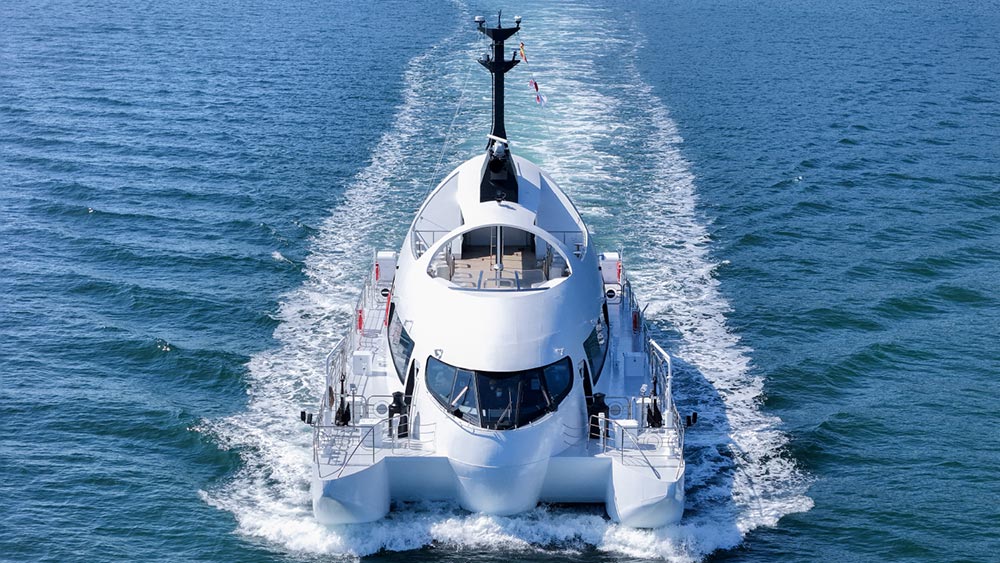
Hydrogen-powered vehicles are drawing attention, and not just on land. As part of our efforts to lower our environmental impact, the Mitsui O.S.K. Lines Group has built Japan's first hydrogen passenger ship, HANARIA. For fuel, it runs on hydrogen and biodiesel. The ship employs a hybrid system built with a combination of hydrogen fuel cells, lithium-ion batteries, and diesel generators for power sources, thereby reducing carbon emissions by about 55% compared to conventional ships that run on 100% diesel fuel. If HANARIA were to run on hydrogen fuel cells alone, it would achieve zero emissions.

However, the road to completing HANARIA was not an easy one. As there was no precedent to follow, so the only way to proceed was to develop a method for supplying hydrogen with ships. Furthermore, since hydrogen is loaded and transported on land, we had to comply with the laws and regulations applicable on land, along with those affecting ships. In consultation with Japan's Ministry of Land, Infrastructure, Transport and Tourism and the Ministry of Economy, Trade and Industry, we decided to develop portable hydrogen tank modules and hydrogen supply systems that were usable on both land and sea.

To assist with this project, we enlisted help from companies that had been promoting hydrogen. For example, to develop the ship's systems, we referred to technology in hydrogen-powered fuel-cell vehicles. Despite the pandemic, the project's team of engineers hailing from different industries worked together to overcome the many technical challenges. Between July 2022 and January 2023, they held 71 weekly remote meetings.

HANARIA is currently operating as a passenger ship based in the Kanmon Straits area and elsewhere. Another benefit of electric propulsion is that it reduces vibration and noise, allowing passengers to enjoy a leisurely conversation on board. And when the ship is operating on zero emissions, there is no engine noise. It is so quiet that you can hear the sound of the waves breaking against the ship. That's good for the environment as well as the passengers and crew. This new cruise experience will surely become the norm in the future. The MOL Group will continue contributing to sustainable development and pave the way to an unprecedented future.

